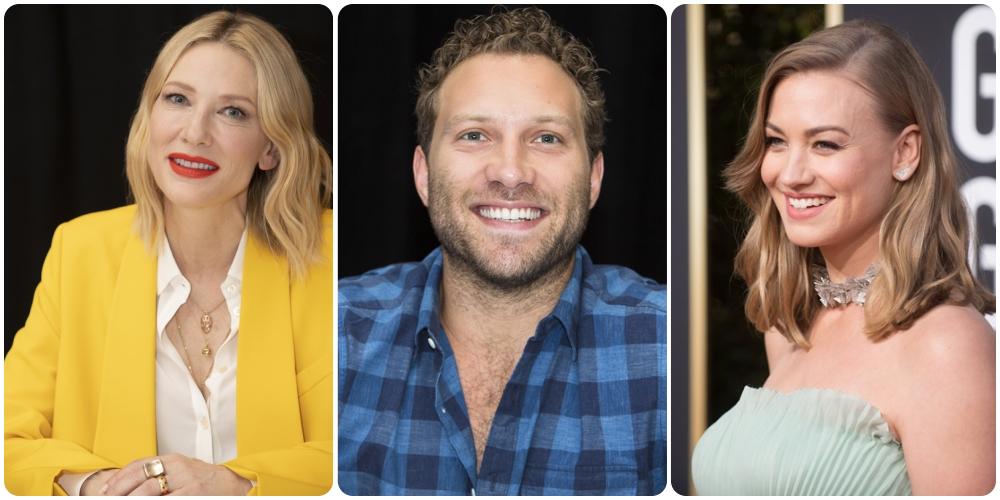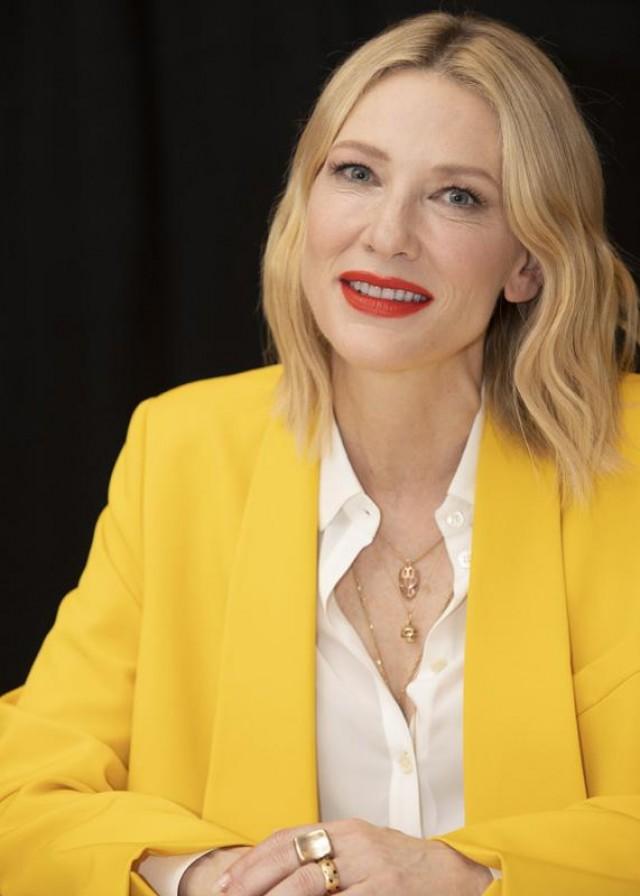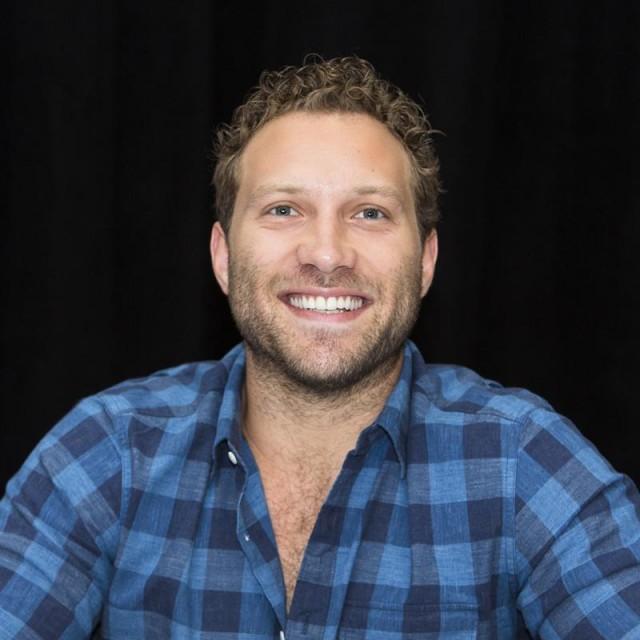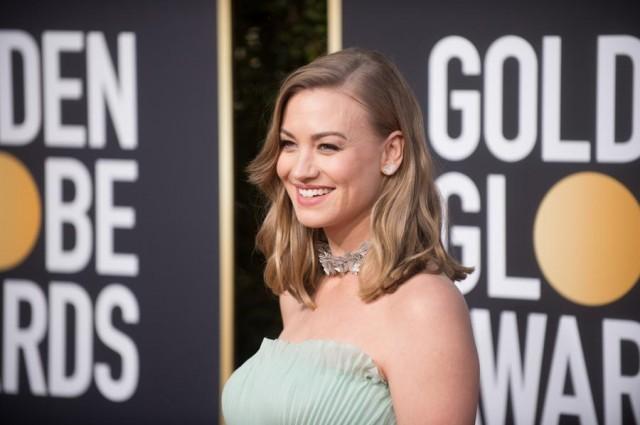Cate Blanchett, Jai Courtney and Yvonne Strahovski of ‘Stateless’ talk immigration and coping with the lockdown

Los Angeles — Cate Blanchett is keeping cool and collected.
As creator-producer of the new hard-hitting TV drama that aims at her country’s own immigration system, Cate remains focused and confident as she details why she ventured on a very important and controversial topic.
“Stateless” is inspired by the true and tragic story of Australian/German Cornelia Rau who made headlines in 2004, when she escaped a dangerous cult only to be trapped and unlawfully detained in the notorious Baxter Immigration Detention Centre located in the Australian desert.
The series actually follows four strangers whose lives intertwine: Sofie Werner (Yvonne Strahovski) is an airline hostess escaping a cult, Ameer (Fayssal Bazzi) is an Afghan refugee fleeing persecution. Cam Sandford (Jai Courtney) is a young Australian father who wants to get out of a dead-end job and Claire Kowitz (Asher Keddie), a bureaucrat caught in a national scandal.
We recently went on a virtual call with Cate, Jai and Yvonne who all shared with us their experiences in doing the series and the heartbreaking stories they heard from the refugees and detainees themselves.
Cate Blanchett

Can you please tell us how you got involved in this project?
All the characters are composites and they’re inspired by people that we met. Elise McCredie, my dear friend and another co-creative, did a tireless amount of research.
And there were some stories that we’d heard and accounts that we’d read, experiences of the guards and bureaucrats and detainees and refugee applicants. But we’re talking about working together and it was a little bit like the elephant in the room. We were both, I think like many Australians at the time, bewildered as to why offshore processing was shrouded in secrecy and it felt that these might have…subjugation of people’s basic human rights offshore on our watch was not part of the national conversation.
And so we wanted to raise an awareness of the global displacement crisis and I think drama’s a great place to do that in a nonpolitical way, but also just to bring it back into the national conversation in Australia.
It was a passion project obviously. You use the word refugee or asylum seeker and those words have become incredibly politicized and so it took a long time for us to find partners who were brave enough to see beyond that political rhetoric and the polarizing nature of it and to look at the human drama, which of course is where “Stateless” lives and breathes.
So we kept hoping that it would become irrelevant but unfortunately, sadly, it’s become incredibly pressing. And so yeah, very timely I think, particularly when everybody is locked inside and I think to some degree it’s hopefully an empathetic connection to the refugee experience. Refugees have been displaced for scores of years and live with deep uncertainty as we’re all living through right now.
What was the reaction of the government when they found out about your project?
Well as we’re currently seeing, often governments don’t reflect the majority view of civilians on the street. And I don’t necessarily know what the government reaction has been, but I know what the audience reaction has been and I think a lot of people thought that, perhaps the refugee experience would be seen through a particular lens, a judgmental lens, and we’ve gone to great pains to make sure that we’re looking at the broken system that we’re all laboring under, not just in Australia but around the world, from all angles.
We’re trying to find a poignant connection and so in the end I hope that’s what the governments are seeing. Because it’s not a political drama even though of course the fact that 80 million around the world who’ve been forced to leave their homes due to violence and persecution, governments should absolutely be dealing with that.
One in 97 people in the world are now displaced, a large percent of humanity, it requires urgent political action. But we’ve tried to, rather than deal with the overwhelming nature of those figures. We’ve tried to look at the power of one so we followed one central refugee family, the life of a guard, the life of a bureaucrat, the refugee advocate, a German Australian woman, as a point of intersection as perhaps for a more middle class audience who may feel estranged from the refugee experience. Hopefully the audience will connect with the humanity and how we’re all involved in this change and this problem.
Then maybe it will allow the government to no longer think of closing borders to the world’s most vulnerable population.
The last time we spoke to you in April, you were making foil unicorns with your daughter during the lockdown. When the world opens up, what are the things you are looking forward to doing again?
I’m looking forward to the world not being cello-taped together in a pale resemblance of its dysfunctional previous iteration. I’m looking forward to emerging into a new world that is sane and inclusive and rational and forward-thinking. There’s a lot of challenges I think that face us all and a lot of voices that need to be continually heard and listened to and folded into the societies that we need to re-forge and remake. I don’t want to step out and step backwards, that’s for sure.
Jai Courtney
Your character is very conflicted, morally. He wants to do the good thing but he finds himself turning into the person he hates the most. Can you tell us how you went into his skin and what did you learn from this experience?
That was the journey I could see with Cam that was so interesting to me. It was a lot of the reason that I got involved despite the other obvious attractions to the project. What I saw was a working class father who is only striving to create a better situation for his family, seemingly gets into this situation innocently and really an innate sense of care and nurturing because that's who Cam is at his core.
Obviously, the way that the detention center is run and the situations he's up against feeding the unraveling of his mental stability. That's something that we're seeing across the board with the system and that is something that the series examines so well.
No matter where we're looking at it, which unique perspective we're coming from, it's failing everybody and I think that's the interesting thing about him. It's like the obvious reach might be to assume that a guard is someone who wants to be there to enforce some position of authority. That's not necessarily the case and I'm so glad that the role was written in the way it is, because I find it much more interesting to examine. That position from a more authentic perspective and it's sort of certainly true of the people that I met. They were people who we were able to engage with as part of my research.
I met guards that had been in different facilities similar to the one represented in “Stateless” and other ones. Some of them had varying experiences but generally across the board, there was a sense of being let down by the conditions, being let down by the training, the welfare and what they were forced to do.
A lot of this stuff, once you're in a position where you're working for a company who has been subcontracted by the government, you just have a responsibility to carry a job out. That's the job he needs to keep. It's a job he wants to do well because that's within us to strive to do so, but it's not a job he really wants to do or a task that he really feels good about. I feel like it was handled well.
The writer Elise wrote some amazing material for him and I got to say that being able to tackle that across six hours was the real gift for me. I haven't worked in TV for a little while and so to have that time to explore his journey and really sink my teeth into it was a real pleasure.

A lot has changed in the world since “Stateless” premiered in Berlin and I wonder personally how it has been for you. Has this impacted or changed any of your opinions about work?
It's obviously been a crazy, crazy year for everyone globally. When the coronavirus shutdown came about, I wasn't shooting. I was getting ready to go and do something in May but that was still a couple of months out and it was all starting to unravel a little when Berlin happened.
But, at first, it wasn't that big of an adjustment. It just felt like an extended period of time off and I knew we were going to have to really dig in. It was funny because some people were talking about the couple of weeks they were going to have to lock down and I was always of the suspicion that it was going to take us a lot longer to recover. It is getting more uncertain.
I've reserved any of that just to see how it plays out but it's been trying. It's been tough. It's been a great time to just focus on other stuff creatively. I've been developing some material and working on some music and it's so good that there's some material coming out.
“Stateless” obviously being one of those things and depending on how long we're in this situation, there'll be some other stuff dropping later in the year which I'm excited about.
Honestly, it feels like really chaotic times. I go between having total hope that we'll be able to turn around from this and things will go back to some sense of normality, whatever that is, and sometimes I feel like we're far from that and that things need to collapse further in order to create the space to build up again so I don't know.
It's an exciting time as well. The Black Lives Matter movement and that stuff has been really amazing to be around and continue to educate myself on and educate others and keep having those tough conversations and learning about one another. It's just one of those crazy times.
We never realized how broken our systems are until we see evidence of that. It's unfortunate that people have to hurt so bad in order to uncover some of the things that have been overlooked by government and by each other. It's a rough year. We're all looking forward to pushing through it but that's not really worth anything unless we see some major change.
Yvonne Strahovski
See @yvonnestrahovski in #StatelessTV. Coming soon to Netflix. #yvonnestrahovski
A post shared by Stateless (@statelesstv) on
You just had your baby boy before shooting “Stateless” so that must be insane, paying that tough and tormenting character and still having a baby boy in your arms after shooting. Can you please talk more about that?
Yes, it was insane. I would describe it the same. I had my baby boy actually right before I started shooting season three “Handmaids,” so I went back four weeks later and then I had three days back in LA to repack and go to Australia to do “Stateless.” So it was insane.
I was still breastfeeding him throughout the shoot every few hours and all throughout the night. So I think the sleep deprivation probably helped me in some way, but that production has such a special place in my heart — probably more so than any other, just because we talk about real issues and things that are so relatable to things that are going on, immigration issues in real life.
And the people that we worked with, the background artists, I'm not sure if Cate mentioned, but they were all people that were hired by the production who were not real actors. They were people who had been through detention before, or had a family member who had been through it. And some of our background artists had been up the road at a detention center that is since now shut down.
But it was amazing to have this. They really were so connected to the material. So all those group scenes, were so real for them and they kept saying because their responses were so emotional and true and because it was real for these people. It really allowed us, as actors, to connect even more to the humanity of this experience and portraying these stories.

Were you able to talk to some of the refugees and what did you learn from these discussions?
I learned a lot. I didn't actually know that we were going to be working with people who had been through detention or refugees. I remember the first day on the set, the detention center at set. I remember looking around and thinking, 'Wow, this feels so authentic.'
I started chatting to people and I just ended up sobbing throughout the first week. Because (Yvonne starts crying) sorry. But it was so emotional hearing all people's stories. (Sobbing) I met so many families, like a woman whose name was (crying) …her family and how she managed to get her husband and her children to Australia and she lost the rest of her family. Yeah. We just heard so many stories. Sorry.
I am so sorry. It’s heartbreaking watching it.
I don't want to cry.
I can only imagine being that much closer to it all and also having your own newborn. Could you talk a little bit about what that was like going from that new life to all of that? Can you also tell us where you are now and what’s going on with the baby in lockdown?
Yeah, sorry. I didn't expect to get so emotional. In the first week, it was like we're hearing all these stories and it just made it so real, which is what hopefully this show does for people.
We're talking about humanity and people who are in these horrendous situations and separated from their children. And like you said, being a new mom, I think it resonated even more powerfully, especially when I'm watching Fayssal perform his storyline with his children in that. It's just so great that we portray.
We talk about this detention center from so many different angles. We've got the government bureaucrat, the security guard who is having a moral dilemma and all. We're all having a moral dilemma with everything that's going on.
So it was just extraordinarily powerful, as you can see. But as far as where I'm at right now, I'm in the mountains. I took a little trip, actually, a little social distance trip with my husband and my son, and who are walking around the campground somewhere. But we just decided to hit the road and utilize the family time. We're such nature lovers and outdoor lovers, so we've been exploring the Eastern Sierra, actually, which is stunning. Highly recommended. If anyone sees my Instagram posts, I've been posting these gorgeous photos of these lakes and it's just beautiful. — LA, GMA News



